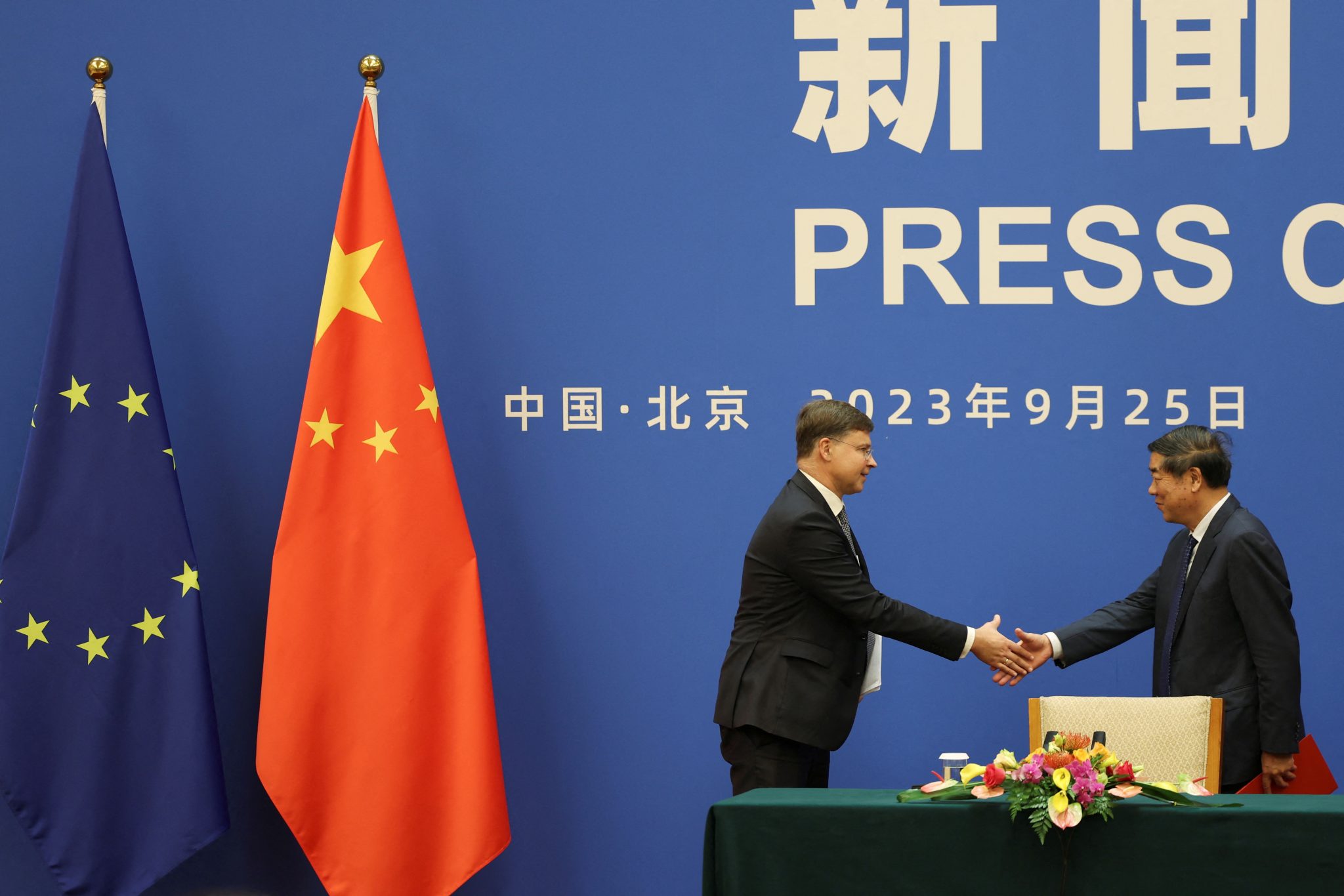Author: Marian Seliga, J&T Banka
Western nations and multinational corporations, severely impacted by COVID-19 restrictions and supply chain disruptions, are reevaluating their approaches towards China. While many Western businesses view China as a vital market, there is considerable uncertainty about the Chinese economy’s potential recovery.
Amid the backdrop of uncertain economic trends in China and globally, the interactions between the world’s two largest economies, China and the United States, hold significance. Relations are continuing to deteriorate. Chinese President Xi Jinping even accused the United States of trying to hinder China’s technological advances in March 2023.
Geopolitical tensions also exist, particularly over the Taiwan issue. While a military resolution to the matter remains largely hypothetical, the dynamics within the business community demonstrate that political tensions tend to take a backseat to economic considerations.
Since China lifted its restrictive COVID-19 measures in late 2022, it has reopened to foreign visitors and businesspeople. But despite political criticism of Beijing’s assertive stance in the South China Sea and Taiwan, Western businesses recognise the Chinese market’s importance to their companies or personal wealth accumulation. If they ever need to take definitive actions, they would prefer to ‘de-risk’ rather than completely sever ties with China.
The CEOs of prominent US companies such as Apple, Pfizer and BHP attended the China Development Forum in Beijing in April 2023. Elon Musk, Tesla founder and currently the wealthiest individual on Earth, visited China two months later. China is Tesla’s second-largest sales market after the United States, accounting for around one-quarter of total revenue. In June, Microsoft CEO Bill Gates held a meeting with Xi in Beijing, during which the Chinese leader referred to Gates as the first ‘American friend’ he has encountered in recent times.
Poor economic data indicates that even Chinese consumers harbour doubts about the future trajectory of China’s economic development. Statistics reveal challenges in the real estate sector, traditionally a key driver of China’s GDP. Despite recent efforts by Chinese banks, such as slashing interest rates to stimulate consumption and investment, the outlook for the Chinese economy remains lacklustre.
As the Washington–Beijing relationship deteriorates, European Union member states are adopting divergent strategies in their interactions with China. These strategies are influenced by multiple drivers, including each nation’s economic interests, historical experiences with authoritarian regimes during the Cold war, and values such as freedom and democracy.
For example, Lithuania adopts a distinct and principled policy towards China. Lithuania actively champions the fundamental values and democratic principles of the European Union. It openly cultivates political relations with Taiwan and does not shy away from critiquing human rights violations in authoritarian regimes. After Lithuania agreed to exchange diplomatic offices with Taiwan, China effectively imposed an unofficial blockade against Lithuanian imports.
France — the second-largest economy in the European Union — adopts a more prudent approach when it comes to engaging with China. During French President Emmanuel Macron’s visit to China in April, he led a delegation of business leaders to forge new agreements. While this does not imply indifference to human rights issues, France recognises the crucial significance of its business ties with China.
There is also a divergence in political approaches towards China within individual countries. In Germany, there is a faction characterised by a ‘business first’ approach, exemplified by individuals as well as German manufacturers with business operations in China.
On the other side, there is a cohort of EU advocates who closely align themselves with the US stance on China, including the German Foreign Minister, Annalena Baerbock. This group advocates for reduced reliance on Chinese exports, intensified scrutiny of Chinese investments within the European Union and more stringent regulations on outbound investments into China. The Netherland’s ban on exports of ASML chipmaking machines to China in June 2023 is in line with this policy.
Many European officials are increasingly aligning with US views on China while safeguarding their economic interests. For example, the Italian government has indicated its intention to pull out of China’s Belt and Road Initiative. European Commission President Ursula von der Leyen is pushing for export controls on sensitive technologies. Hungary and Poland are both stepping up their economic cooperation with China. For the seventh consecutive year, China is Germany’s largest trading partner, with bilateral trade reaching US$322 billion in 2022.
As its overall trade deficit with China rises to unprecedented levels, the European Union is becoming more pragmatic about future economic cooperation with China. This leads to the de-emphasising of China for many multinational companies and calls for ‘decoupling’. Germany’s latest China strategy affirms the pressing need to establish effective frameworks for future engagements with Beijing.
Despite undeniable evidence of worsening relations between the United States and China, Western businesses continue to maintain ties with China. But even within the European Union, member states have varying approaches when it comes to dealing with China. While at the EU level, China is perceived as a competitor, at the national level, each country possesses a unique set of business interests related to China, which shape their official policies. Striking a balance between accommodating these interests and upholding EU approaches is an arduous task for every country.
Marian Seliga is Head of China Desk and Advisor to the Board at J&T Banka, Czech Republic.











.jpg&h=630&w=1200&q=100&v=5f99a4b43f&c=1)








Discussion about this post